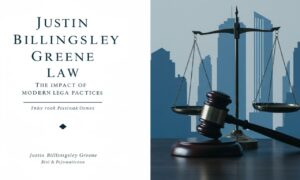Ashcroft Capital Lawsuit Investors Need to Know
In the world of real estate investing, trust and transparency are critical. So when a lawsuit emerges involving a prominent investment firm like Ashcroft Capital, it naturally raises questions within the investor community. The term “Ashcroft Capital lawsuit” has recently gained attention, prompting investors, analysts, and observers to dig deeper into the situation.
This article explores what is known about the Ashcroft Capital lawsuit, the potential implications for investors, and how it reflects broader challenges in real estate syndication and fund management.
What Is Ashcroft Capital?
Ashcroft Capital is a U.S.-based real estate investment firm founded by Joe Fairless and Frank Roessler. The firm specializes in multifamily property acquisitions and management, often using syndication models to pool capital from individual investors and acquire large-scale apartment communities across the country.
With a reputation for managing billions in real estate assets, Ashcroft has attracted many passive investors looking for long-term returns through real estate without direct landlord responsibilities.
Overview of the Lawsuit
As of now, publicly available information about a specific Ashcroft Capital lawsuit is limited and largely speculative. However, whenever a lawsuit is mentioned in connection with a high-profile investment company, a few common themes typically come into play:
Possible Lawsuit Triggers in the Real Estate Industry:
Breach of Fiduciary Duty
Investors may allege that the firm failed to act in their best financial interests or mismanaged assets.
Fraud
This includes accusations of misleading performance data, inflating property values, or concealing risks associated with investments.
Contractual Disputes
Disagreements over terms in investor agreements, distribution timelines, or project execution could lead to legal action.
Failure to Deliver Returns
In economic downturns or real estate slumps, investors may pursue legal remedies if expected returns aren’t realized and they suspect mismanagement.
At this time, it’s unclear if the Ashcroft Capital lawsuit refers to an ongoing legal case, a settled dispute, or online rumors stemming from investor dissatisfaction. No official public records confirm a major legal case, but concerns or discussions may have surfaced on forums, investor groups, or watchdog sites.
Lawsuits on Investment Firms
In cases of a lawsuit, against an organization such as Ashcroft Capital, possible implications of this may be:
- Reputational Loss: In investing, trust is of essence in real estate. Investor confidence can only be affected by allegations.
- Regulatory Scrutiny: Lawsuits can attract regulatory scrutiny (in particular by the SEC or other regulating bodies), particularly in the event retail investors have an interest.
- Operational Disruptions: The internal resources are frequently transferred to the legal issues, which aggravate the deal flow and the communication with the investors.
What are investors supposed to do?
As an investor of Ashcroft Capital or in case you want to join a real estate syndicate, there are several significant steps to consider:
Stay Informed
Look out official communication of Ashcroft Capital on investor doorway, newsletter, or publication.
Review Agreements
Go through your operating agreements or PPM (Private Placement Memorandum) to see what lies in your rights, or what should the firm fulfill.
Legal Advice Authorities
In case you have some concerns, a competent real estate lawyer may assist in assessing your standing and the possibility of risks.
Portfolio Diversification
Do not put all your eggs in one basket. When you diversify your capital, risks will decrease.
Conduct Due Diligence
Research on any firm before investing includes finding out about their track record, their leadership and feedback by earlier investors.
Final Thoughts
Although it can be alarming to hear about or read the initial documents of a lawsuit against Ashcroft Capital, it would be best to take the matter with a grain of salt and start to investigate instead of hypothesizing. It is at this stage when accounts are either vague or not investigated and no solid evidence can be found that suggests serious misconduct.
Having said that, this situation can also be remembered as a warning to pay attention to the due diligence, communication, and legal awareness of engaging in syndicated real estate investments. As much as Ashcroft Capital lawsuit might be treated as a genuine legal challenge, or an exaggerated web argument, investors would always do well by being cautious and educated.














Post Comment